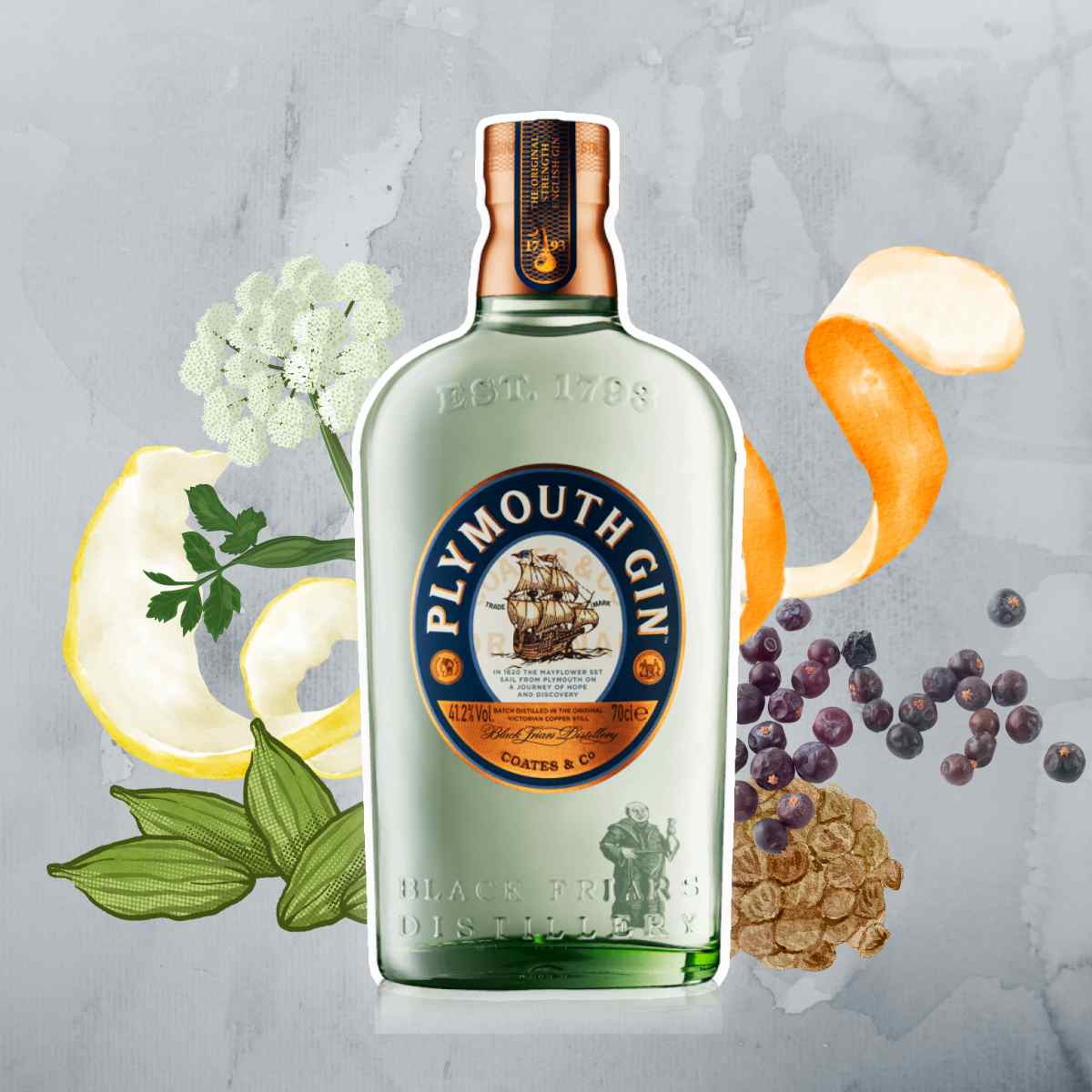You rarely will come across a spirit brand that's considered a separate type within its category. Plymouth Gin is one of them, and the best-known, too. Yet, it's still hard to grasp what makes it so special and how it's different from other classic Gin styles like London Dry or Dry Gin.
The brand's story began back in 1793 when they first produced their spirit in the Black Friars distillery - now better known as Plymouth Gin distillery. Its close location to a Naval dock is one reason it became so popular with the British Navy, but it's not the sole one.
Learn how Plymouth differentiates from other products, how it tastes, which botanicals go in, and how you should best use it in drinks and cocktails.
Quick Facts
- Produced by: Pernod Ricard
- Distilled at: Black Friars Distillery in Devon, England
- Style: Plymouth Gin
- ABV: 41.2% (original strength), 47%
- Spirit base: Wheat-based 'buttery' neutral spirit
- Taste: Earthy, citrus, angelica, juniper
- Best served: Gin and Tonic
About Plymouth Gin
The original bottle strength of the Gin is 41.2% ABV, but there's also a 47% version sold worldwide in Duty-Free stores. Further, the brand produces a "Navy Strength" expression, which clocks in at 57%. And the latter is the traditional and official amount the British Royal Navy once demanded of a Gin supplied to the Navy.
As mentioned, Plymouth Gin is considered its own category. An offshoot of London Dry Gin with an alternate set of botanicals that create a unique and hard-to-replicate flavor profile.
Until 2015, the European Union granted Plymouth Gin a PDO - Protected Designation of Origin. That means that other brands couldn't use the term "Plymouth Gin" to promote their products if they don't produce their Gin in the designated area or don't follow the traditional production methods.
It expired in 2015 when Pernod Ricard announced they were not interested in its continuation. After all, the company owns the tradename and has been the sole producer of this kind of Gin for more than 100 years.
Why is Plymouth Gin a separate category?
Many people wonder why and how Plymouth Gin differs from other Gin types like London Dry or Dry Gin. The answer lies in the details and starts with the base spirit. Gin is usually based on neutral, wheat-based grain spirit, and so is Plymouth Gin. But the texture and mouthfeel of Plymouth are best described as buttery and velvety.
On top, the botanicals and their ratio vary from other classic Gins. The result is a restrained juniper flavor, more pronounced earthy notes, and increased citrus flavors.
Thus, it's mostly treated as its own type of Gin or, at least, as a sub-type of London Dry Gin.
Ingredients
The list of botanicals in this Gin isn't very different from other brands, but the increased ratios of rooty and earthy ingredients make sure that the resulting taste is quite distinct. For this, the Gin uses seven different ingredients:
- Angelica root
- Juniper
- Orris root
- Lemon peel
- Coriander seed
- Orange peel
- Green Cardamom
Taste
The nose of the Gin is dominated by strongly pronounced earthy notes of Angelica root. In the background, you can smell a combination of juniper, cardamom, and coriander.
When tasting Plymouth Gin, the spirit reveals its complexity and beauty. Its smooth and earthy flavor notes are balanced with a bright, piney juniper. Angelica, cardamon, lemon, and sweet orange notes round out the bouquet, creating a harmonious combination that delights the senses.
Not only is the taste of this Gin unique, but its texture as well. It's incredibly smooth, with a slight oiliness or butteriness and a gentle heat that finishes off with a perfect blend of earthy notes and soft citrus. It's truly a one-of-a-kind taste experience you won't get with any other Gin.
Different Expressions of Plymouth Gin
Besides the classic expression, Plymouth Gin produces and promotes four other bottles. That includes the boozy Navy Strength Gin as well as Sloe Gin, Gin Fruit Cup, and "Mr. Kings 1842". Let's have a quick look at these products and how they differ.
Plymouth Gin (original)
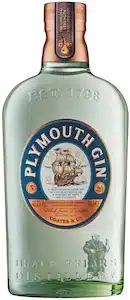
The classic bottle of Plymouth Gin contains 41.2% of alcohol and is known for its distinct earthy taste and buttery mouthfeel. It's part of many classic Gin cocktails.
Plymouth Gin Navy Strength
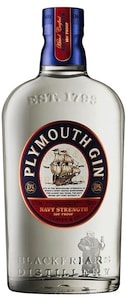
The Navy Strength expression is made with the same seven botanicals as the classic Plymouth Gin. Due to the higher amount of alcohol (57% ABV), the taste is bolder and more aromatic when compared to the standard version.
Plymouth Sloe Gin
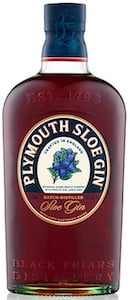
Plymouth Sloe Gin is based on the classic expression and is additionally sweetened and flavored with sloe berries to achieve the distinct taste and color of Sloe Gin. The alcohol content is relatively low (26% ABV), which technically doesn't qualify as Gin; -this applies to most other Sloe Gin too.
Plymouth Gin Fruit Cup
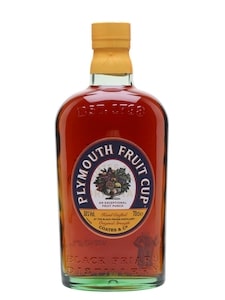
Fruit Cups, also known as Summer Cups, are traditional English beverages traditionally enjoyed with a mixer, such as lemonade, ginger ale, or soft drinks. Plymouth Fruit Cup is a unique product that also is not officially Gin due to its lower alcohol content.
It consists of 30% alcohol, significantly higher than regular Fruit Cups, typically containing only 5% to 15%. This unique blend is made from Gin, fruit liqueurs, Vermouth, bitters, and citrus, making it the perfect accompaniment to any summer drink.
Mr. Kings 1842 Recipe
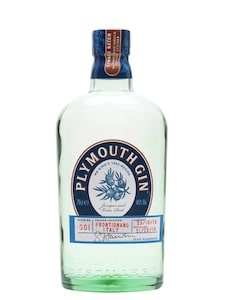
Experience the extraordinary Mr. Kings 1842 recipe, a strictly limited product crafted to perfection with only two botanicals - juniper berries and orris root. Carefully selected from a single-origin juniper, picked on a single day, from a single mountain located in Frontignano, Italy, this unique and exquisite flavor is one you don't want to miss. Get your hands on the last bottle of this exclusive recipe before it's gone!
The Prices of Plymouth Gin's Different Expressions
Plymouth Gin is a classic spirit renowned for its unique flavor and texture. Its slightly higher price tag of around $30 for a single bottle makes it significantly more expensive than other classic brands such as Tanqueray, Beefeater, and Gordon's. With its distinct flavor, texture, and price, Plymouth Gin is well worth its price and is sure to provide a truly unique drinking experience.
Plus, if you want to experience the full flavor of Plymouth Gin, you can opt for the Navy Strength variant, only slightly more expensive than the standard bottle.
| Gin Type | Size | ABV | Proof | Price |
|---|---|---|---|---|
| Plymouth Gin | 750ml | 41.2% | 82.4 | $32 |
| Plymouth Gin Navy Strength | 750ml | 57% | 114 | $40 |
| Plymouth Sloe Gin | 750ml | 26% | 52 | $35 |
| Plymouth Gin Fruit Cup | 700ml | 26% | 52 | $20 (EU) |
| Mr Kings 1842 Recipe | 700ml | 41.2% | 82.4 | $50 (UK) |
How to drink
Plymouth Gin is a versatile spirit that makes a great addition to any bar. Whether you're looking for a classic Dry Martini or Gin Tonic, Plymouth Gin is an excellent choice.
It's a great base for Martinis, with a classic 5:1 or 2:1 ratio, and its subtle flavor pairs perfectly with olive brine for Dirty Martinis. Not just for Martinis though. With its light and smooth flavors, Plymouth Gin also makes a fantastic Gin Tonic, and it's ideal for classic cocktails like a Gin Fizz, a Gin Sour, and a Ramos Gin Fizz. It's also the original base ingredient in the White Negroni cocktail invented by Wayne Collins.
So whether you're a classic cocktail aficionado or just looking for a new Gin to try, Plymouth is a perfect option.

